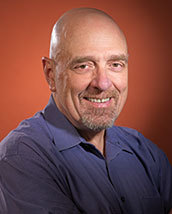roadblocks to reform
Not long ago, as gas and diesel prices soared to unprecedented levels, John McCain and Hillary Clinton both proposed a fuel tax "holiday" as a way to alleviate the pain for motorists and, though it didn't get much mention in the popular press, truckers.
At about the same time, the American Trucking Associations and many of its members called for an increase in fuel taxes. They said they would support an increase as long as there was some guarantee that those funds would be used only for infrastructure improvements. [See our stories on the ATA proposal (page 9) and on the infrastructure debate (page 78).]
That coincidental timing—of the call by two presidential candidates for curtailing fuel-tax collections with a call for an increase by some of the biggest payers of that very tax—is indicative of the intractable problem this nation faces in regard to maintenance and expansion of our transportation infrastructure.
Here's the conundrum. The truckers, which are among the heaviest users of the highways, are willing to pay more in order to build a more efficient and productive surface transportation system. They understand that eliminating bottlenecks, ensuring bridges are safe, and establishing freight-friendly corridors would be a good return on that investment.
But the people who make the decisions on taxing and spending have a very different perspective. Highway spending bills have become larded with earmarks for local projects. And highway spending policies rarely seem to be based on a holistic view of the national network—one that acknowledges, for instance, that improving a key highway link in Chicago could benefit shippers (and their customers) in Atlanta, Boston, Boise, Sacramento, and so on. Certainly, elected officials at all levels are expected by constituents to look out for their own. But, as the philosopher Edmund Burke observed, we ought to expect them to use good judgment as well. And that has become increasingly difficult in the modern political environment.
Take the "donor state" argument, which says that states that pay more in federal fuel taxes than they receive in highway spending are somehow shortchanged. Determining the best way to distribute funds is complex, but it ought not ride on a policy based on the philosophy of "I'll get mine."
The trucking industry, of course, has its own agenda when it proposes policy changes. And the rails have theirs as well. Getting consensus among many competing interests is a perpetual problem, and when policy-makers don't fully understand the problem to begin with, it becomes nearly impossible.
I don't know how close we are to an infrastructure crisis. I do suspect, though, that policies driven by parochialism will not prevent it.
Related Articles

Copyright ©2024. All Rights ReservedDesign, CMS, Hosting & Web Development :: ePublishing